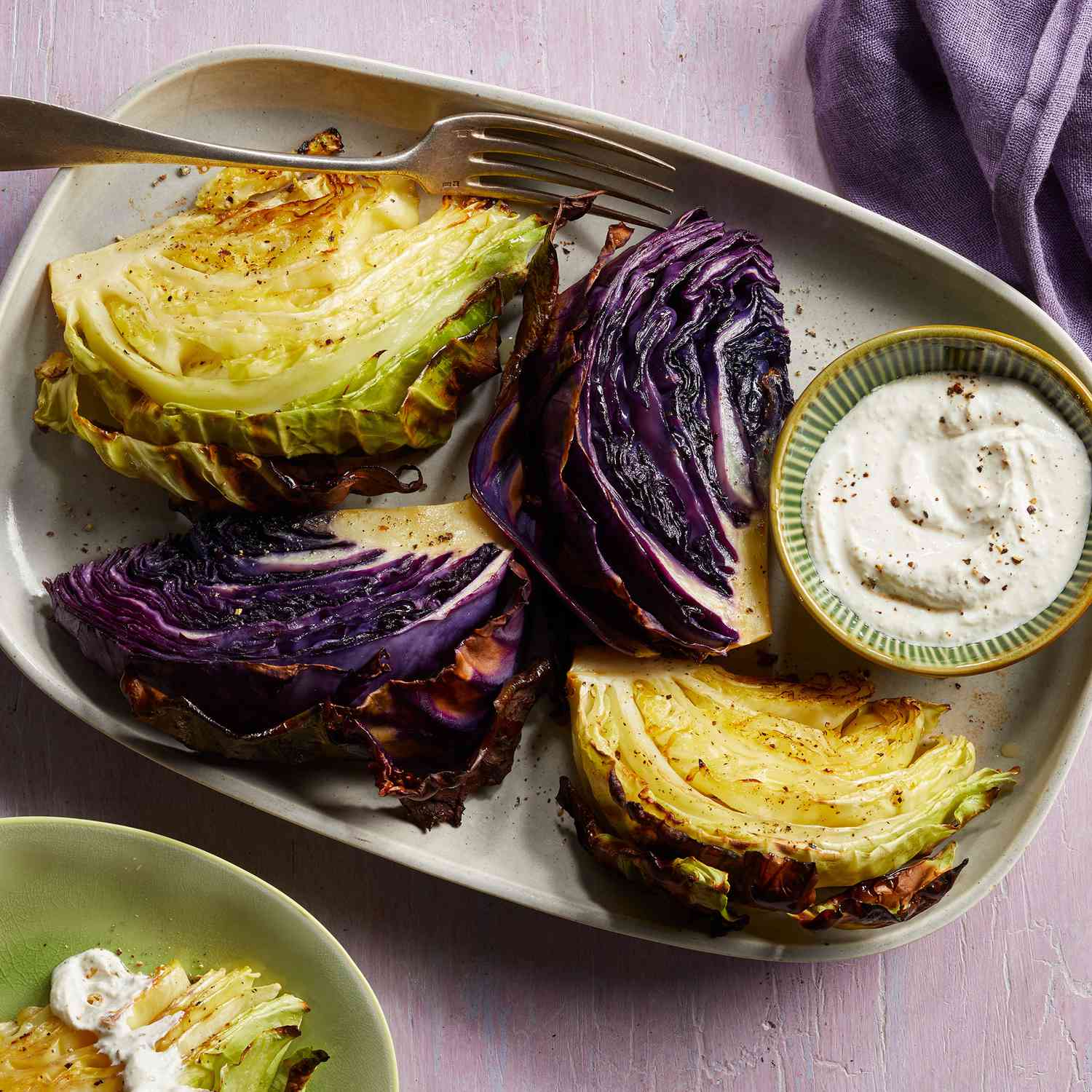The case for vegetation retains getting stronger and stronger, as main well being consultants and organizations acknowledge the advantages of shifting towards a extra plant-based means of consuming. The Academy of Vitamin and Dietetics, the American Institute of Most cancers Analysis and main well being care organizations like Kaiser Permanente have all weighed in, favoring extra plant-based consuming. And because the influence of local weather change turns into more and more a each day actuality, environmental consultants additionally urge that we eat extra vegetation and fewer animal meals with a view to use our land and water assets extra sustainably.
An enormous landmark on this effort got here in January 2019, when EAT-Lancet, a consortium of worldwide researchers, launched a report recommending a “Nice Meals Transformation” to attain an environmentally sustainable, nutritious diet for the world’s inhabitants by 2050. The important thing advice: chopping the consumption of animal meals as a lot as potential (by no less than half) and doubling our consumption of plant meals (greens, legumes, fruits and nuts). By making these adjustments, they argued, some 11 million deaths could possibly be averted. Whereas critics challenged the report for being impractical, the gauntlet it threw into meals coverage discussions has had a strong influence.
Individuals are getting the message. In accordance with a January 2023 report, 68 % of Individuals have tried a plant-based meat or dairy different. The meals trade is on the case too, offering us with ever extra decisions. In accordance with analysis agency Mintel, the variety of new plant-based meals gadgets launched in supermarkets grew a whopping 268 % between 2012 and 2018. Nearly any animal-based product is now accessible in a plant-based model; nut “milks” and fake cheeses take up main area in dairy instances (satirically), and vegetarian gadgets fill the prepared-foods and freezer sections. Eating places are additionally entering into the act, including extra meatless and vegan gadgets to their menus—from fast-food meatless burgers to vegetarian tasting menus at upscale eating places.
And let’s face it, plant-focused diets have change into, nicely, actually cool. In the present day they’re embraced by celebrities of each stripe, from Beyoncé and Billie Eilish to Woody Harrelson and Tom Brady.
However what can we imply once we speak about plant-based consuming? Fortunately, the boundaries are huge sufficient to accommodate many approaches. Some 16 million of us in the USA are vegetarians who eat no meat, fish or poultry however embody eggs and dairy merchandise. One other 1 million or so are vegan, consuming solely plant-based meals and avoiding animal merchandise fully.
After which there may be the “flexitarian,” or “semi-vegetarian,” consuming sample, which occupies a cheerful center floor: consuming the vegetarian means on most days, however having meat or fish sometimes. Whereas estimates differ, about one third of us are possible consuming this fashion already. Many have flocked to the thought of going meatless no less than sooner or later per week; witness the success of the worldwide Meatless Monday marketing campaign in establishments and houses everywhere in the world.
There’s loads to advocate within the flexitarian method, which many people would possibly discover simpler to undertake than going full-on vegetarian or vegan. In contrast with different Individuals, flexitarians usually tend to get the beneficial each day consumption of vegatables and fruits and fiber—and reap extra well being advantages, like a wholesome physique weight and a decrease danger of diabetes and hypertension.
Coincidentally, a flexitarian eating regimen is also much like what dietitians, diet researchers and public well being advocates have been recommending for years. Contemplate the newest U.S. Dietary Pointers Advisory Committee Report (2020): “Widespread traits of dietary patterns related to optimistic well being outcomes embody larger consumption of greens, fruits, legumes, complete grains, low- or nonfat dairy, lean meat and poultry, seafood, nuts, and unsaturated vegetable oils and low consumption of crimson and processed meats, sugar-sweetened meals and drinks, and refined grains.”
In reality, although, wherever you fall (or purpose to fall) on the plant-forward consuming spectrum, committing to placing extra vegetation in your plate is a win to your well being. A plant-forward eating regimen has been linked to a decrease danger of such diet-related situations as weight problems, coronary heart illness, hypertension, sort 2 diabetes and sure cancers. What’s extra, plant-rich consuming patterns are related to positives—like an extended life span and higher psychological functioning.
These wholesome hyperlinks aren’t shocking when you think about that many vegetation are dietary powerhouses. Consuming extra helps you get extra of the vitamins Individuals typically get too little of, similar to folate, calcium, magnesium, potassium and nutritional vitamins A, C and E. Plant-based diets may also present loads of good-quality protein—an necessary issue to notice in our present protein-obsessed period. Vegetarians was once recommended to mix plant-based protein sources similar to rice and beans of their meals to get a full complement ofprotein. However right now diet consultants say that is now not a priority; by getting a wide range of meals all through the day, you may simply meet your protein wants.
Whereas consuming a plant-forward eating regimen appears fashionable, it is actually simply retro: folks have been consuming this fashion—with relish—for millennia. Consider the standard consuming patterns of the nations surrounding the Mediterranean Sea, the place meals are constructed round complete grains, greens, fruits, beans, nuts and wholesome oils and, sometimes, eggs, cheese and seafood—and solely small quantities of meat. Research after research has proven that this Mediterranean eating regimen sample is without doubt one of the world’s healthiest, related to decrease charges of coronary heart illness, diabetes, most cancers and even Alzheimer’s illness.
Likewise, conventional diets all through the nations of Asia differ broadly, however they’ve a number of widespread, and health-giving, threads. From India to Japan to China to Indonesia, each day meals are constructed round rice and an abundance of greens, legumes, soy meals, complete grains, fish, herbs and spices. Dairy meals are typically fermented, including gut-friendly probiotics to the menu. Vegetarian diets are broadly practiced, many grounded in non secular practices, and meat, if eaten in any respect, tends to be a small element of a dish (consider the flavorful nuggets of lamb enhancing the rice in an Indian biryani).
Conventional African meals methods department in a number of instructions but in addition have plant meals at their core. Greens, significantly leafy greens, are staples—together with tubers like cassava and candy potatoes, complete grains and legumes, fruits, nuts and seeds. Fish, poultry and meat—similar to a Moroccan beef-and-carrot tagine served on couscous—are additionally savored in small quantities.
And Latin culinary traditions, emanating from numerous areas similar to Mexico, South America, Cuba and Puerto Rico, are additionally largely constructed round plant-based meals. Corn, beans, rice, complete grains and tubers similar to cassava and yams are each day staples, together with chiles, pumpkin, tomatoes, avocados and tropical fruits. As a result of there’s such scrumptious produce to cook dinner with, meat does not must play a starring function. Simply dig right into a Brazilian feijoada, a hearty black-bean stew flavored with pork, and you will get the image.
In contrast with different Individuals, flexitarians usually tend to get the beneficial each day consumption of vegatables and fruits and fiber.
One final, highly effective argument within the eat-more-plants camp: it could possibly have large advantages for the surroundings. Since a lot of the nation’s meat and poultry requires a lot of land and water assets and has a large carbon footprint, changing meats with a plant-based different simply as soon as per week—say, having rice and beans for dinner, Meatless Monday model—can have a big influence. This may additionally imply much less animal waste, plus fewer antibiotics used within the meals provide, since many animals raised on industrial-scale farms are routinely fed antibiotics.
So whether or not you name your self vegetarian, flexitarian or “plant-positive,” making the dedication to extra vegetation in your plate is a doable, scrumptious shift—and it is by no means been simpler.
The next story is excerpted from EatingWell’s particular version, The Energy of Plant-Primarily based, which is offered at Amazon.










